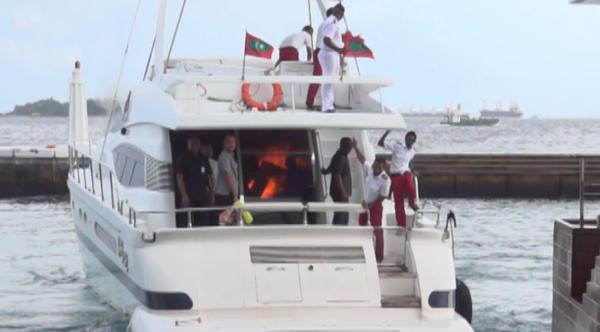Trials begin for boat blast suspects
Former Colonel Ahmed Fayaz ‘Papa,’ who is accused of ordering two explosives experts to remove evidence from the Finifenma speedboat immediately after the mysterious explosion, told the court today that he was following orders from Chief of Defence Forces Major General Ahmed Shiyam.

30 Mar 2016, 09:00
The trials of former Vice President Ahmed Adeeb and five soldiers, who were charged in connection with the September 28 blast on President Abdulla Yameen’s speedboat, began at the criminal court today.
Adeeb was brought to Malé this afternoon for the first hearing of his trial on a terrorism charge. A spokesperson for the Prosecutor General’s office said Adeeb requested 30 days to appoint a lawyer, but the three-judge panel gave him seven days.
Adeeb was silent when the charges of terrorism and abuse of authority were read out, the spokesperson said.
The former vice president and his former military bodyguards, Sergeant Hassan Rikaz and Corporal Ahmed Amir, are accused of planting an improvised explosive device on the Finifenma speedboat. The PG office said the three went on the speedboat a day before the blast “in order to plant the IED.”
Become a member
Get full access to our archive and personalise your experience.
Already a member?
Discussion
No comments yet. Be the first to share your thoughts!
No comments yet. Be the first to join the conversation!
Join the Conversation
Sign in to share your thoughts under an alias and take part in the discussion. Independent journalism thrives on open, respectful debate — your voice matters.




